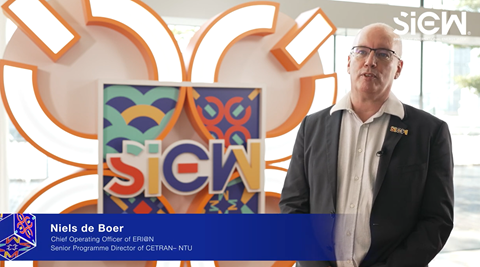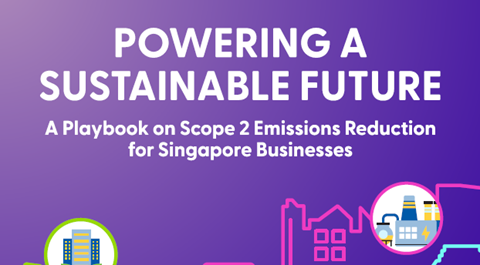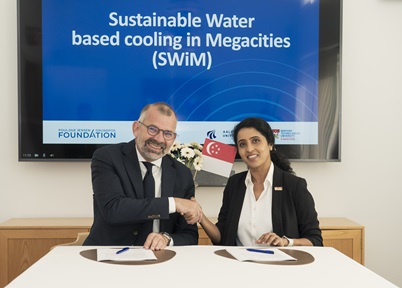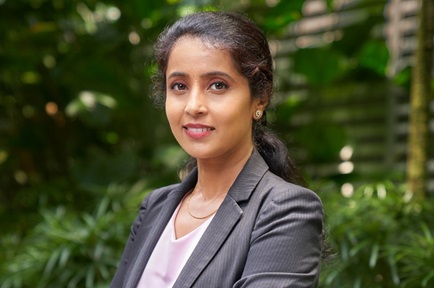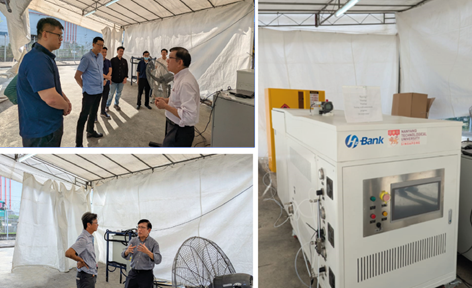Trailblazers: Professor ‘Energizer Bunny’ powers on in battery research, winning accolades
First published online at The Straits Times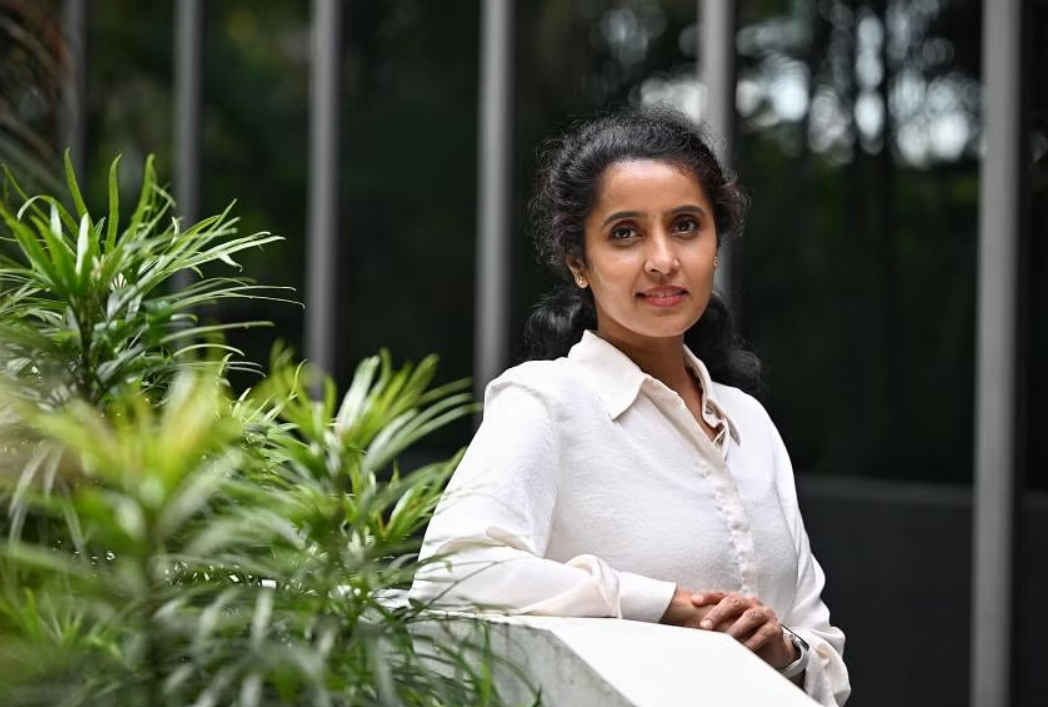 Professor Madhavi Srinivasan loves batteries, or at least, studying them. ST PHOTO: ARIFFIN JAMAR
Professor Madhavi Srinivasan loves batteries, or at least, studying them. ST PHOTO: ARIFFIN JAMAR
Professor Madhavi Srinivasan, 40s
Executive director of the Energy Research Institute @ NTU (ERI@N) and NTU Sustainability Office
Her colleagues call her an “Energizer Bunny” because of her effervescent energy and enthusiasm for her work.
But there’s another reason: Professor Madhavi Srinivasan loves batteries, or at least, studying them.
“My PhD was on batteries,” she tells The Straits Times, with a hint of excitement in her voice. “Batteries are something that I inherently like.”
Her love for batteries is evident in the many research papers she has published on batteries since joining Nanyang Technological University (NTU) as a researcher in 2002.
With 370 high-impact research papers and 30 patents under her belt, Prof Madhavi has also won several awards, including one called Great Women of Our Time, given by Singapore Women’s Weekly Magazine in 2011.
She is the executive director of the Energy Research Institute @ NTU (ERI@N) and NTU Sustainability Office, and co-director of the Singapore-CEA Alliance for Research in Circular Economy, which develops new ways to recycle e-waste.
At the School of Materials Science and Engineering at NTU, Prof Madhavi and her team research developing novel energy storage solutions and recycling of e-waste and lithium-ion batteries.
She related how, in conversations with local e-waste recyclers, she and her team found that these companies had low profit margins and were not keen on bearing the further costs of adding new chemicals containing citric acid to break down batteries.
They simply shred the batteries and sort them into plastics and metals.
As a result, the scientists began their hunt for cheaper alternatives and landed on... fruit peel.
Citric acid, which is found in fruit peel, is a key ingredient in extracting precious metals from spent batteries so that they can be recycled.
These metals, such as cobalt, lithium and manganese, are then precipitated into metal salts that can be used in new lithium-ion batteries.
Armed with this knowledge, Prof Madhavi and her team diligently collected mixed discards of fruit peel from a canteen at NTU each day that they could use in their research. However, the amounts of various fruit peel collected were inconsistent. This meant that the volume of precious metals that could be extracted from each batch of battery waste would be different.
One day, while she was at an orange juice vending machine, she thought why not just use one type of fruit peel for their project.
She and her team then proceeded to make use of only orange peel, collected from the same canteen stall, to recover precious metals from spent batteries. Orange peel is rich in sugars and natural acids that boost the dissolution of metals,
They have partnered with battery recycling and processing company Se-cure Waste Management (SWM) since 2023 to dissolve metals found in lithium-ion batteries being recycled by SWM with chemical solvents derived from fruit peel waste.
The battery recycling facility can process up to 2,000 litres of spent shredded battery mixed with fruit-peel-derived solvents to extract electrode materials such as cobalt, lithium, nickel, and manganese.
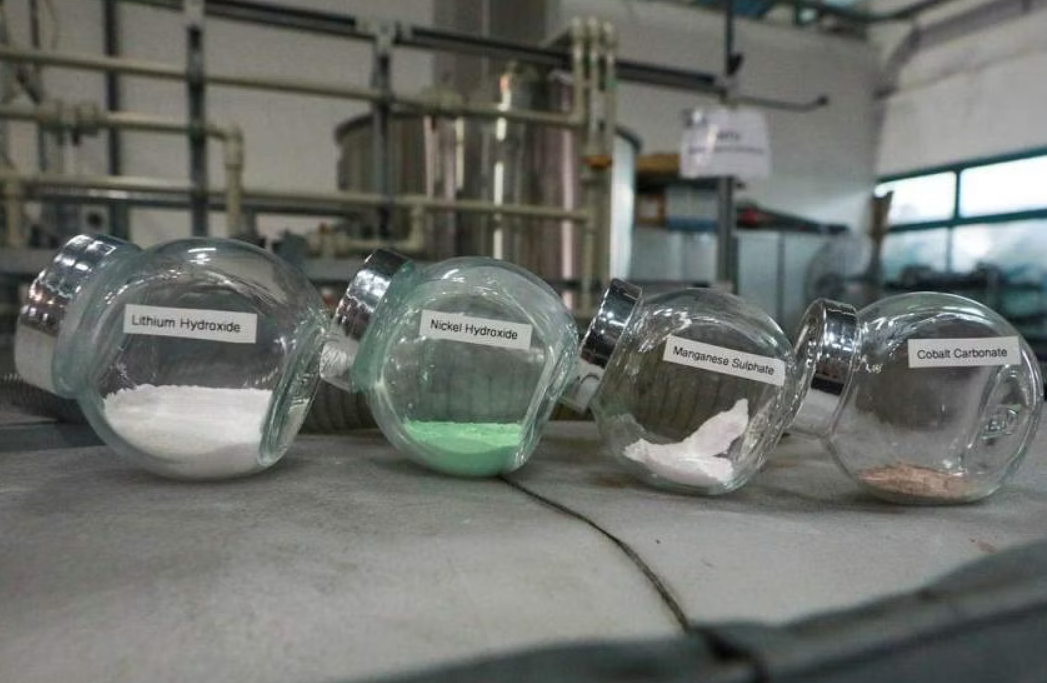
Samples of precipitated metal salts from recycling spent lithium-ion batteries at the Se-cure Waste Management recycling plant. ST PHOTO: RYAN CHIONG
NTU and SWM plan to commercialise this process in 2024 and sell the recycled materials to battery makers around the world.
“We have collected data that the cost reduction (of) using our technology is 20 to 40 per cent,” said Prof Madhavi, referring to the cost of the extraction process.
A study commissioned by the National Environment Agency in 2017 revealed that as many as 60 per cent of Singapore residents still do not know how, or are unsure of how, to recycle their e-waste.
Though the awareness of e-waste recycling is still low, Prof Madhavi is optimistic that it will increase as e-waste recycling becomes more profitable and economical for local industries.
In spite of her busy schedule and work responsibilities, Prof Madhavi has learnt to juggle her multi-faceted career and family life since giving birth to her son in 2008, the year that she was promoted to assistant professor from teaching fellow.
She became associate professor in 2013, and was made a full professor in 2016.
To help women succeed in the scientific world, she has been actively involved in the L’Oreal For Women in Science community worldwide and United Women Singapore.
At online workshops and events conducted by both these organisations, she encourages women to work in Stem (science, technology, engineering, and mathematics) industries.
Prof Madhavi hopes that aspiring female scientists can “carve their own path, give it their best every day, believe in themselves, and develop the resilience to turn setbacks into stepping stones”.


